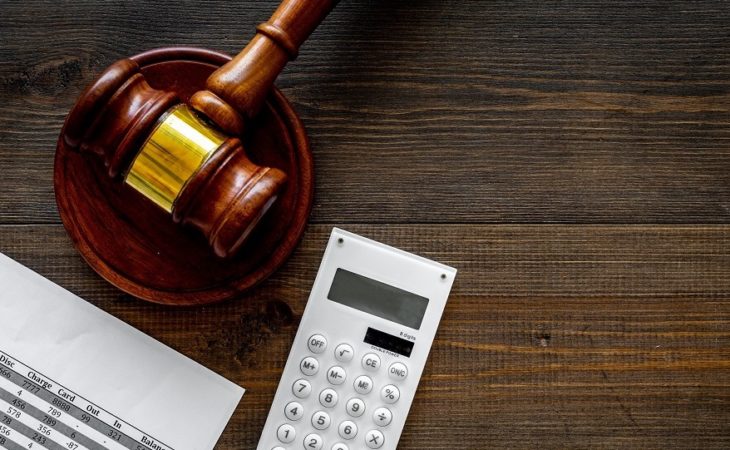Insolvency Lawyers Geelong & Melbourne
Insolvency is a sensitive and complex area which requires expert advice. Our insolvency team uses its comprehensive experience and merges technical skill and commercial insight in dealing with a broad range of insolvency matters.
Our approach to insolvency is that sound commercial advice and direction benefits you now and into the future. We aim to achieve the best possible outcome for you.
We act for administrators, liquidators, trustees, receivers and managers as well as individuals and companies in all aspects of corporate and personal insolvency. We also represent creditors adversely affected by distressed companies.
Our lawyers are experts in advising on:
- appointment issues – the valid appointment of a voluntary administrator, liquidator or receiver is a critical step in commencing insolvency procedures
- restructuring
- the Personal Property Securities Register (PPSR)
- voidable transactions
- drafting and negotiating deeds of company arrangement; and
- debt recovery
Our insolvency-related services include:
- advising company directors on duties and company turnaround
- representing secured and unsecured creditors in the recovery of assets, property and debts
- conducting litigation for and against insolvency practitioners, including recoveries under the insolvency provisions of the Corporations Act and Bankruptcy Act concerning unfair preferences, uncommercial transactions and other voidable transactions
- advising creditors who are or may be affected by the insolvency of their debtors
- acting for individuals and companies facing insolvency – advising on formal insolvency options, and possible alternatives
- acting for related parties or family members who may be affected by the insolvency of a family member or business partner
Our proven experience means that our team can help you navigate the complex area of insolvency with ease.
Frequently Asked Questions
“Insolvency” is the concept that a company (or individual) cannot pay its debts as and when they fall due. Temporary lack of liquidity does not constitute insolvency.
An insolvent company (or a company that is likely to become insolvent) can be subject to what is known as “external administration”. This term refers to one of many schemes available to insolvent companies (and sometimes creditors) with a view to either restructuring the company so that it may continue trading, or winding the company up via a liquidator.
“Winding up” is the liquidation process, by which a registered liquidator realises any company assets, makes a distribution to creditors of any available assets, and deregisters the company.
The words “insolvency” and “bankruptcy” are often used interchangeably but mean two very different things. Whilst both words carry negative connotations and the inference of an inability to pay bills on time, they each describe different circumstances and have different consequences for individuals who are struggling to pay their debts. Find out more.
There are many things to consider, depending on the particular circumstances. Ultimately, you should seek financial and legal advice at the earliest possible opportunity.
You should be aware that directors can be personally liable for debts incurred in the course of the company trading whilst it is insolvent (with limited exceptions), including under what is known as the “safe harbour” provisions. In essence, the safe harbour regime can provide protection to directors while they are developing courses of action which are “reasonably likely to lead to a better outcome for the company” than voluntary administration or liquidation.
It is also important to know that company liquidators have wide ranging powers to seek to “void” (i.e. undo) certain transactions of the company within a certain period prior to a liquidation (usually six months). Such transactions can include where a company transfers property to a related or other party, where that transfer was not in the interests of the company.
Director loan accounts can also be called in by the liquidator, as well, of course, as other debts of the company.
Directors should also be wary of any liability under personal guarantees, under director penalty notices issued by the ATO, and where the ATO has been receiving “preferential payments” in the lead up to the liquidation. In this instance, the ATO can seek an indemnity from the company directors if it is obliged to account to the liquidators in respect of a preferential payment.
Finally, you should consider whether an appointment of an external administrator should be made, rather than allowing a creditor to exercise any rights to appoint a liquidator of their choosing.
There are a number of options open to financially distressed companies with a view to either restructuring, or winding up the company.
When assessing those options, it is imperative to understand the processes involved, and the roles of the various stakeholders, including – the external administrator, directors and creditors.
The most common options follow, with a brief description of each.
Voluntary administration
- Here, the company directors may place the company into “voluntary administration” in the event they consider the company is insolvent, or is likely to become insolvent.
- In doing so, the directors appoint an independent administrator to investigate the company’s affairs, with a view to determining whether there are alternatives to a liquidation.
- The voluntary administrators assume control of the company pending their investigation, and a vote of creditors as to the future of the company. The directors’ powers in this process are significantly restricted.
- In the meantime, the rights of creditors to recover debts and terminate contracts are limited. This gives the company an opportunity to be able to trade while considering its fate.
Liquidation (creditor’s voluntary liquidation)
- The shareholders of a company may place the company into liquidation and appoint a liquidator, particularly if there is no prospect of the company recovering from its insolvency. This is also one of the possible outcomes of a voluntary administration.
- Here, the liquidator’s job is to investigate the affairs of the company (including with a view to making any claims concerning “voidable transactions”), realise the company’s assets, and make a distribution to creditors.
- Creditors are not able to pursue the company for the debts, unless they have security for those debts (and only then, to the extent of that security).
Directors lose their powers over the company, and are obliged to assist the liquidator in the performance of their duties.
Yes.
Creditors in certain situations can appoint an external administrator, including a liquidator or a “receiver”. A receiver can be appointed by a secured creditor over particular company property, for the purposes of recovering the debt to which that security relates.
“Creditors’ statutory demands” are commonly ignored by companies, to their detriment. If you receive such a document, the failure to answer it creates a presumption of insolvency. This presumption can then be used by a creditor in an application to have a liquidator appointed. If you receive a statutory demand, it is imperative you appoint a lawyer immediately.
Creditors are also able to pursue directors in respect of an insolvent trading claim, as referred to above.
In short, you should seek advice from your financial and legal advisors upon determining that your company may be insolvent. By acting early, and prior to creditors taking adverse action, you will be maximising your prospects of a better outcome.
The insolvency space can be very complicated and confusing. Engaging expert help is a must.
We have significant experience acting both for and against external administrators, including in relation to any matters arising out of liquidations and administrations.






